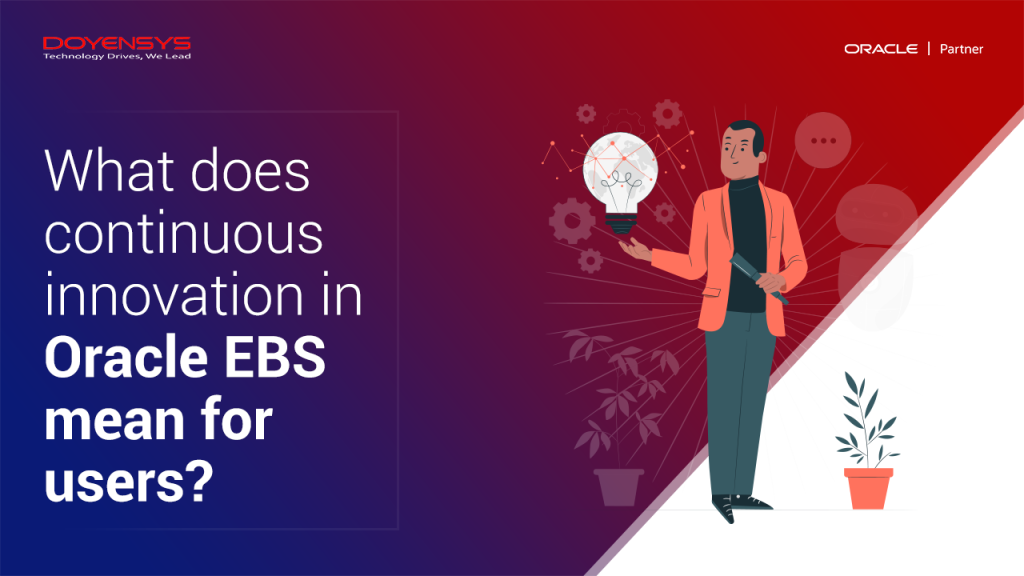For more than 30 years, millions of businesses worldwide have relied on Oracle E-Business Suite (EBS) to manage their critical business operations and activities. Oracle’s strategic product roadmap has altered recently to emphasize Cloud-based products and services. As a result, popular on-premise products such as EBS are lagging in development, albeit new features and improvements have been done.
To reassure EBS users, Oracle recently announced that it will provide Premier Support for the most recent EBS release (12.2) until at least 2032. It is rolling 10-year commitment to EBS customers is exceptional, especially in light of the increased emphasis on Cloud-based SaaS solutions.
So, what does the future hold for Oracle EBS users? Let’s take a look.
 Oracle E-Business Suite – why do customers prefer it?
Oracle E-Business Suite – why do customers prefer it?
Following the OATUG E-Business Suite data research, 70% of respondents are extremely satisfied or relatively satisfied with EBS, while another 26% are neutral or slightly satisfied. The most satisfied customers are using the most recent edition, and 39% of respondents said they plan to use EBS “indefinitely.”
Additionally, 63% of respondents use one or more outside providers, indicating an openness to seek assistance in navigating the EBS ecosystem complexity. What do these statistics signify? Oracle E-Business Suite is used by thousands of enterprises globally to manage the process of various businesses.
Oracle is offering continual apps and underlying technology stack upgrades to Oracle EBusiness Suite 12.2 without requiring a significant upgrade by employing a “Continuous Innovation” strategy. With added features, Oracle is also improving Oracle E-Business Suite products to ensure they can fully utilize Oracle Cloud Infrastructure and work well with other complementing Oracle SaaS apps.
Through a major release update, Oracle E-Business Suite clients have typically embraced new versions of the technology stack with a new application code level. It involves delivering new versions of Oracle Fusion Middleware platform technologies, a new code level for the applications, and upgrade scripts to transfer existing schema, PL/SQL, and data to the latest Oracle E-Business Suite release level using Oracle’s Rapid Install tool.
Customers can anticipate the following with Oracle E-Business Suite 12.2’s Continuous Innovation aspect:
Ongoing Applications Updates: Applications code for Oracle E-Business Suite 12.2 will continue to receive upgrades comparable to 12.2.x releases that have been released about yearly. Updates will integrate bug fixes and new features into a comprehensive, suite-wide patch set that is applied quickly with online patching & the updates will be cumulative.
Ongoing Technology Stack Updates: Ongoing updates to the technology stack are made possible by the Oracle Fusion Middleware platform technologies that support Oracle E-Business Suite. These will enable users to upgrade the technology stack without updating the code of the Oracle EBusiness Suite applications.
Oracle E-Business Suite 12.2 now offers Continuous Innovation, putting it in line with other Applications Unlimited product lines (Hyperion, JD Edwards EnterpriseOne, PeopleSoft, and Siebel CRM) that have likewise committed to offering Continuous Innovation and Premier Support through at least 2033.
Oracle E-Business Suite – what does the future hold for users?
Oracle is always adding new features to E-Business Suite that enhance user experiences and make them more valuable. Given the amount of money businesses spend on ERPs, the long-term R12 support timelines, and Oracle’s vow to provide EBS with premium support until at least 2030, one can expect premium support from the company for E-Business Suite even after 2030.
Companies can stay on Oracle EBS and analyze the need for technological shifts by comparing their business and technical requirements with the roadmaps and support from Oracle for EBS unless new requirements and functionality arise.
What strategies should users take to leverage the EBS updates in the future? Let’s take a look.
1. Upgrading to the latest version
Oracle advises maintaining the on-premise EBS up to date while you transition to a hybrid cloud strategy. According to the survey, EBS users who are using the most recent version (12.2) are happier, more inclined to support innovation, and more likely to stick with the ERP.
2. Invest in Security
Whatever the justification, ERP security must be a top concern. People who are less interested in, or unable to, regularly patch can benefit from investments in external products or service providers who can shield your entire Oracle ecosystem from vulnerabilities.
3. Address Resource Gaps Through External Services
Organizations reported aggressively utilizing external resources to support their EBS operations, which may be related to the continuing innovative strategy despite the previous year’s difficulties. System integrators, database managers, and managed service providers offer a wide range of services that can help with practically any need, enabling EBS users to stay on the ERP and experience increased functionality and operational efficiency.
The Bottom Line:
The Oracle E-Business Suite roadmap reassures customers who rely on EBS for mission-critical operations that their system will be maintained and improved for many years. It should also reassure them that Oracle is working to make EBS customers who want to continue maximizing their investment in the suite aware of the benefits of Oracle’s Cloud Infrastructure and Applications.

